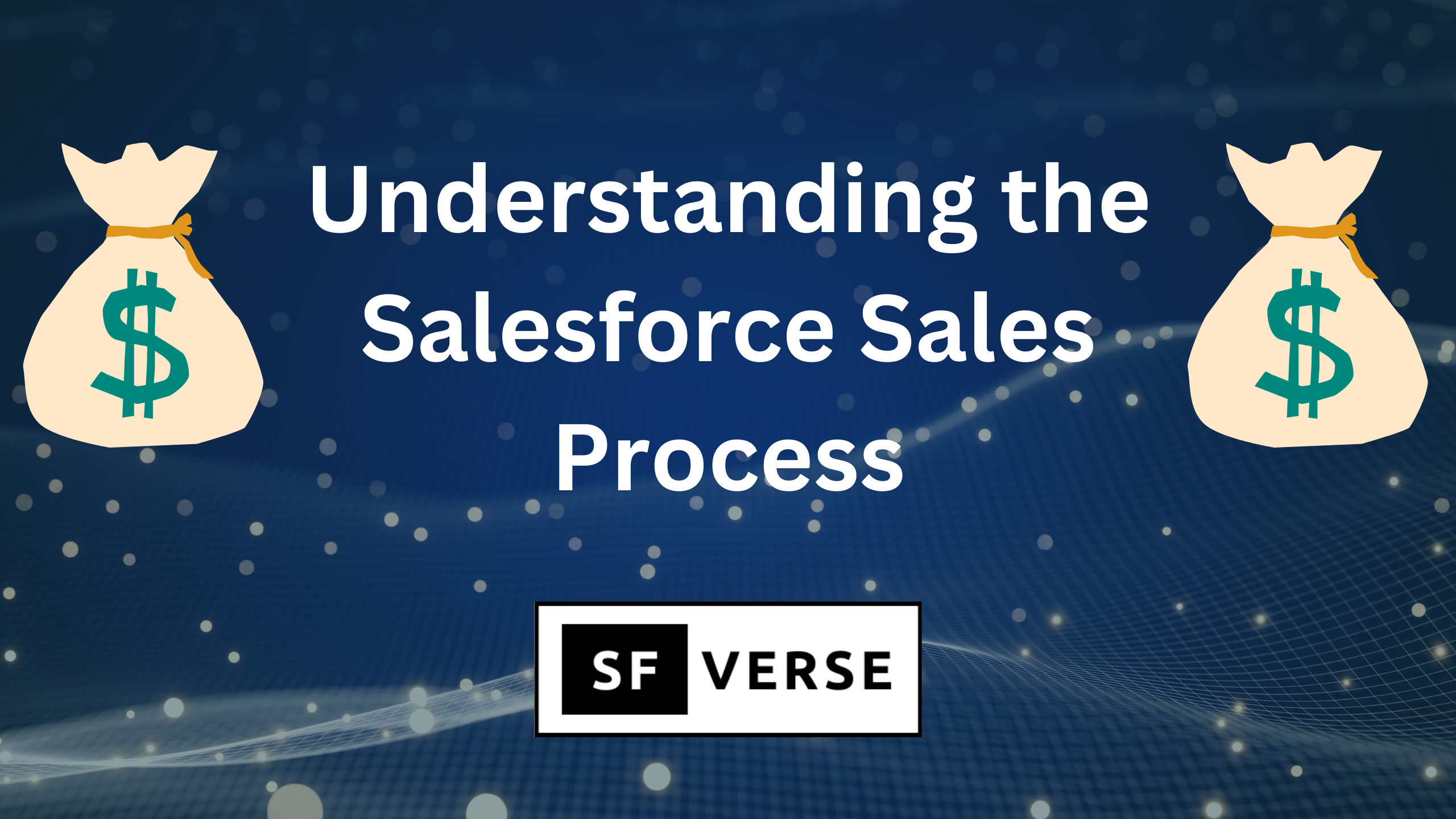Before diving deep into salesforce one should understand the Salesforce Sales Process.
Salesforce is a the world most trusted Customer Relationship Management (CRM) Platform. It streamlines sales processes for businesses. In order to develop solutions for your customers you have to understand the Salesforce sales process and the various objects which are involved like lead, account and contact. In this article we will understand the salesforce sales process.
Key Objects
- Leads: The sales process begins with capturing leads in to the CRM. Lead in Salesforce represents a potential customer who has shown interest in buying your product or services. The lead can be someone who has filled out contact us form in your website or have attended the webinar.
- Accounts and Contacts: When a lead is converted, it get transformed into 3 objects which are Accounts, Contacts and Opportunities.
- Account: It represents an organization with whom you do business with. Example ABC Computers.
- Contact: It represents a person at an organization who is a key stakeholder or a decision maker on behalf of the organization. Example John Doe – Manager
- Opportunities: It is central part of salesforce sales process because it tracks the progress of a sale from start to close.
- Products and Pricebooks: Products represents the goods or services a company sells and Pricebooks categorises products into different pricing structures. Products are added to opportunities to generate quotes and pricebooks are used to apply correct pricing based on customer type.
- Quote: It is a document that captures the information of products, prices and other terms and conditions.
- Tasks and Activities: You can use tasks to capture the actions that needs to be completed. Events to schedule meetings or calls with prospect and can also log email interactions with customers.
Sales Process
As a Sales rep you have captured lead from various sources like websites or social media etc. Once a lead is qualified you convert lead into Account, Contact and Opportunity. You then move an Opportunity through various stages like Prospecting, Quote/Proposal and Close-Won.
Benefits of Using Salesforce
- Centralized Data: All information of potential customer and deals are stored at one place.
- Automation: You can automate repetitive tasks like email follow up using Flow or Apex.
- Analytics: With Reports and Dashboards you can get the valuable insights and make better decisions.
- Collaboration: Seamlessly share information across teams using features like Chatter.
Conclusion
As a Salesforce developer or Salesforce Admin it is important to understand the Salesforce sales process to design a better solution for your clients requirements. I hope I am able to explain you the Salesforce Sales process along with the key objects.
Learn about Dynamic Apex from here.

